For academics writing and citing in the English language there is often confusion and misunderstanding about how to reference my name when quoting one of my scientific papers. More generally, there is considerable confusion about quoting and referencing Germanic names with particles or prefix, especially since the Flemish, Dutch and German ways of doing it differ from each other. In addition emigrants from these countries to English-speaking countries such as Canada and the United States often reference to names of Germanic origin differently again. This particularly the case when one uses the Harvard System of referencing; which is where authors are briefly cited within the text (e.g. Bennett et al. 2009; Smith & Jones 1999), and then given in full at the end of the paper or chapter in a reference list. A few years I published a short piece about referencing Dutch, Flemish and German names for Medical Sociology News (Van Teijlingen 2004). This current version is an update and expansion of it.
German names – Starting with the biggest group of authors, names in German can be preceded by the particle ‘von’ or ‘von der’ or occasionally ‘van’ (in a family of Dutch descent), for example the First World War general Paul von Beneckendorff und von Hindenburg (better known as Paul van Hindenburg), the nineteenth century explorer Karl Klaus von der Decken or the famous composer Ludwig van Beethoven. The general advice to quoting these names in English is: “As a rule, when the surname is cited alone in English, the particle is dropped” (Trask 2002: 135). Thus in the general media one would expect to read about Hindenburg’s victory or Beethoven’s Sixth symphony. Under the Harvard System these particles or prefixes follow the author’s initials (Bett 1953: 17); something which is also advised by the widely used publication manual of the APA (American Psychological Association / http://www.apastyle.org/ ). For an English-language audience it is often easier or more obvious to keep the family name and particle together (see Box 2).
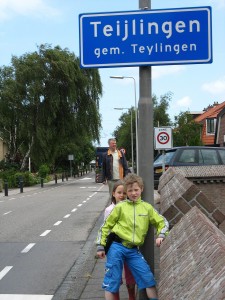 Dutch and Belgium names – Dutch names can have a range of different particles, the most common one is ‘van’. Also possible are, for example: ‘de’, ‘van der’, ‘van den’, ‘van het’, ‘op het’, or their abbreviated forms such as: ‘van ’t’, ‘op ’t’ or ‘v/d’. In the Netherlands, the particles take no capital letter, for example in de name of the former Manchester United goal keeper: Edwin van der Sar. According to Trask (2002: 106) in Flemish-speaking Belgium (and South Africa) it is more usual to capitalize particles, for example: Paul Van Look.
Dutch and Belgium names – Dutch names can have a range of different particles, the most common one is ‘van’. Also possible are, for example: ‘de’, ‘van der’, ‘van den’, ‘van het’, ‘op het’, or their abbreviated forms such as: ‘van ’t’, ‘op ’t’ or ‘v/d’. In the Netherlands, the particles take no capital letter, for example in de name of the former Manchester United goal keeper: Edwin van der Sar. According to Trask (2002: 106) in Flemish-speaking Belgium (and South Africa) it is more usual to capitalize particles, for example: Paul Van Look.
In contrast to German, Dutch particles are always included when the name is used in the text. So, for example, Vincent van Gogh is referred to as Van Gogh. Note that ‘van’ is without a capital when the first name is used and with a capital when the first name is not included, i.e. ‘Van’ is the start of the name. Thus we would expect to read, for example, two Dutch football players: ‘Van Nistelrooij and Van der Vaart celebrated the second goal ..’ but if the first name is included we would use ‘Rafael van der Vaart and Edwin van der Sar celebrated ..’ In the reference list similar to German “particles are ignored when placing names in alphabetical order” (Trask 2002: 106). However, the Dutch would not lose the particle, but place it after the initial. For example, in a Dutch scientific article on the socio-linguistic study of city dialects, Roeland van Hout (1992) quotes two of his own articles as listed in Box 1.
Box 1 Example Dutch reference style of author with ‘van in the surname
| HOUT, R. VAN
1980 De studie van stadsdialect: van dialektologie, empirische linguistiek en sociolinguistiek.
Toegepaste Taalkunde in Artikelen 8, 143-162.
HOUT, R. VAN
1989 De structuur van taalvariatie. Een sociolinguïstisch onderzoek naar het stadsdialect
van Nijmegen. Dordrecht: Foris Publications. |
If the Dutch football players mentioned above had each written something in a newspaper last week they would be found in the reference list of a paper by a sport psychologist or media studies researcher as:
Nistelrooij, R. van (2011)
Sar, E. van der (2011)
Vaart, R. van der (2011)
Meijer (2009: 67) noted that in Belgium, where many people speak Flemish, a variant of Dutch, “it is customary to alphabetize under “V” anyway”. Thus the action-film hero Jean-Claude Van Damme from Brussels (Belgium) whose real name is Jean-Claude Van Varenberg would always be listed in a reference list based on the Harvard under ‘V’.
Surnames of immigrants in English-speaking countries – Family names of Dutch emigrants often changed to suit the local style. So in the United States we find medical sociologist Ray DeVries, the cyclist Christian Vande Velde, Gloria Vanderbilt and in France the French golfer Jean Van de Velde. These ‘foreign’ names would be listed under the particle. So alphabetically Vande Velde is listed after Vanderbuilt (Box 2).
Box 2 Examples of referencing Flemish, Dutch and German authors in English
| German names |
Beethoven, L. van (1817) etc. etc.Beethoven van, L. (1817) etc. |
| Dutch / Belgium names |
Gogh, Vincent, van (1891) etc. etc.Van Damme, Jean-Claude (2002) etc.
Or keeping the family name and particle together:
van* Gogh, Vincent (1891) etc.
Van Damme, Jean-Claude (2002) etc. |
| North-American names |
Vanderbuilt, G. (1998) etc.Vande Velde, C. (2010) etc. |
Legend: * note no capital for ‘v’.
Often academic journals will list all names in alphabetical order of the particle, in the same way the UK telephone directory does. Thus van Teijlingen is listed under ‘V’. One final piece of advice for academic authors is the reminder to always check the author instructions of the journal you are targeting for its reference style.
Edwin van Teijlingen
Bournemouth University
References:
Bett, W.R., 1953, The preparation and writing of medical papers for publication, London: Menley & James.
Hout, R. van, 1992, Het sociolinguïstisch onderzoek van taalvariatie in stadsdialecten (In Dutch: Socio-linguistic research into language variations in city dialects), Taal en Tongval Special Issue 5: 48-65 (available at: www.meertens.knaw.nl/taalentongval/artikelen/VanHout.pdf ).
Meijer, E., 2009 The apacite package: Citation and reference list with LATEX and BibTEX according to the rules of the American Psychological Association, available at: http://ctan.sqsol.co.uk/biblio/bibtex/contrib/apacite/apacite.pdf
Teijlingen, E. van, 2004, Referencing Dutch, German and Flemish names in English, Medical Sociology News 30(1): 42-44 (copy is available from BURO at: http://eprints.bournemouth.ac.uk/11930/2/Referencing_Dutch_Flemish_names.pdf).
Trask, R.L., 2002, Mind the Gaffe: The Penguin Guide to Common Errors in English, London: Penguin.

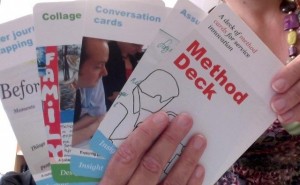 The content of the Method Deck will be particularly informed by the findings from two recent research projects at HSC: The Gay and Grey Project (2006) funded by Big Lottery led by Dr. Fenge and The Gay and Pleasant Land? Project (2009-2012), funded by the UK Research Councils under the umbrella of the New Dynamics of Ageing Programme. The Method Deck will support practitioners to reflect on their own practice, the agency context and the wider structural issues which influence the experiences of older lesbians and gay men in their local communities. Development of the deck will begin shortly with the input of the project’s community partners.
The content of the Method Deck will be particularly informed by the findings from two recent research projects at HSC: The Gay and Grey Project (2006) funded by Big Lottery led by Dr. Fenge and The Gay and Pleasant Land? Project (2009-2012), funded by the UK Research Councils under the umbrella of the New Dynamics of Ageing Programme. The Method Deck will support practitioners to reflect on their own practice, the agency context and the wider structural issues which influence the experiences of older lesbians and gay men in their local communities. Development of the deck will begin shortly with the input of the project’s community partners. Dutch and Belgium names – Dutch names can have a range of different particles, the most common one is ‘van’. Also possible are, for example: ‘de’, ‘van der’, ‘van den’, ‘van het’, ‘op het’, or their abbreviated forms such as: ‘van ’t’, ‘op ’t’ or ‘v/d’. In the Netherlands, the particles take no capital letter, for example in de name of the former Manchester United goal keeper: Edwin van der Sar. According to Trask (2002: 106) in Flemish-speaking Belgium (and South Africa) it is more usual to capitalize particles, for example: Paul Van Look.
Dutch and Belgium names – Dutch names can have a range of different particles, the most common one is ‘van’. Also possible are, for example: ‘de’, ‘van der’, ‘van den’, ‘van het’, ‘op het’, or their abbreviated forms such as: ‘van ’t’, ‘op ’t’ or ‘v/d’. In the Netherlands, the particles take no capital letter, for example in de name of the former Manchester United goal keeper: Edwin van der Sar. According to Trask (2002: 106) in Flemish-speaking Belgium (and South Africa) it is more usual to capitalize particles, for example: Paul Van Look. 
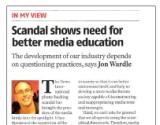 In the last few days, BU academics have achieved a series of major results by having their expertise featured in key national media outlets.
In the last few days, BU academics have achieved a series of major results by having their expertise featured in key national media outlets.



 There have been a wide range of important studies that have used covert methods, that have collected data from people who do not know they are being studied at the time, who would not give permission or, had permission been sought, where the data may have been dubious or biased. Researchers justify their actions by stating the need to gain access to inaccessible groups, to illuminate important social issues, and to uncover the unpalatable. Famous examples include, of course, Rosenhan’s[1] study of the ways in which mental illness may be attributed by location and situation (
There have been a wide range of important studies that have used covert methods, that have collected data from people who do not know they are being studied at the time, who would not give permission or, had permission been sought, where the data may have been dubious or biased. Researchers justify their actions by stating the need to gain access to inaccessible groups, to illuminate important social issues, and to uncover the unpalatable. Famous examples include, of course, Rosenhan’s[1] study of the ways in which mental illness may be attributed by location and situation ( Where do our research ideas come from in the social sciences? Often from lectures and dialogue within these with students, from supervision, and observations we make in everyday life. That we have collected initial soundings and thoughts from these settings and situations, which has not been scrutinised or completed without informed consent is not questioned: it would be ridiculous to assume we needed informed consent to undertake our daily practices!
Where do our research ideas come from in the social sciences? Often from lectures and dialogue within these with students, from supervision, and observations we make in everyday life. That we have collected initial soundings and thoughts from these settings and situations, which has not been scrutinised or completed without informed consent is not questioned: it would be ridiculous to assume we needed informed consent to undertake our daily practices!
 Rufus Stone, a film by Josh Appignanesi
Rufus Stone, a film by Josh Appignanesi 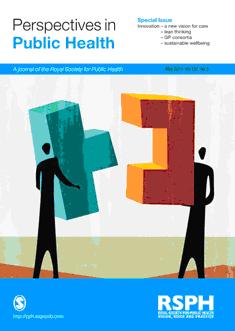
 One of the main elements of quality control in academic publishing is the process of peer review of articles. Editors of scientific journals will send manuscripts submitted to their journal out to a number of reviewers who are experts on, for example, the research topic, the method, theoretical approach or the geographical in the manuscript.
One of the main elements of quality control in academic publishing is the process of peer review of articles. Editors of scientific journals will send manuscripts submitted to their journal out to a number of reviewers who are experts on, for example, the research topic, the method, theoretical approach or the geographical in the manuscript.  Those of us who are actively involved in publishing about academic research are regularly asked to review articles for journals in their field. I usually am invited to review a paper twice or three times a month and I try to do at least one a month. The reasons for reviewing papers are plentiful. First, I believe in the essence of peer-reviewing as a system to maintain scientific quality. Secondly, you get to read some interesting research findings before anybody else, or the flip side, you get some pretty awful papers which makes you realise your own work quite good. Thirdly, it is something expected of all-round academic, as task you can add to your CV, etc. Fourthly, if I want my submitted papers to receive proper attention in the review process I feel I must to the same for someone else. Lastly, I get a chance to see ‘the other side’ as I am also an editor.
Those of us who are actively involved in publishing about academic research are regularly asked to review articles for journals in their field. I usually am invited to review a paper twice or three times a month and I try to do at least one a month. The reasons for reviewing papers are plentiful. First, I believe in the essence of peer-reviewing as a system to maintain scientific quality. Secondly, you get to read some interesting research findings before anybody else, or the flip side, you get some pretty awful papers which makes you realise your own work quite good. Thirdly, it is something expected of all-round academic, as task you can add to your CV, etc. Fourthly, if I want my submitted papers to receive proper attention in the review process I feel I must to the same for someone else. Lastly, I get a chance to see ‘the other side’ as I am also an editor. The very successful
The very successful 
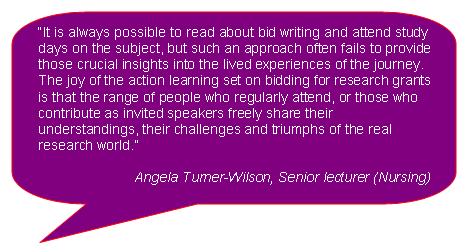
 This 6-month programme which commenced February 2011 has already made an impact. One afternoon per month the group of 10 postdoctoral academics, drawn from each of the research centres in the School, engage with the professoriate in learning the skills of bidding for research grants, sharing the lessons learned, as well as the challenges and the pitfalls. Whilst there are key areas addressed during the programme, essentially the action learning group is informal with the programme content arising from queries and suggestions from the group itself. The atmosphere offers an air of excitement and is informal and very informative with a buzz of spontaneity and active discussion. The testimonials provided here show just how useful the programme has been to participants as well as to the HSC professoriate.
This 6-month programme which commenced February 2011 has already made an impact. One afternoon per month the group of 10 postdoctoral academics, drawn from each of the research centres in the School, engage with the professoriate in learning the skills of bidding for research grants, sharing the lessons learned, as well as the challenges and the pitfalls. Whilst there are key areas addressed during the programme, essentially the action learning group is informal with the programme content arising from queries and suggestions from the group itself. The atmosphere offers an air of excitement and is informal and very informative with a buzz of spontaneity and active discussion. The testimonials provided here show just how useful the programme has been to participants as well as to the HSC professoriate.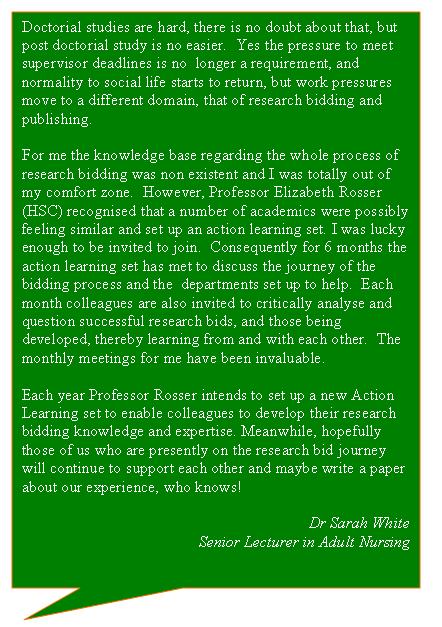



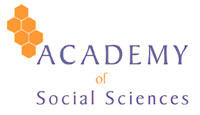











 Dr. Ashraf cited on ‘Modest Fashion’ in The Guardian
Dr. Ashraf cited on ‘Modest Fashion’ in The Guardian NIHR-funded research launches website
NIHR-funded research launches website Academics write for newspaper in Nepal
Academics write for newspaper in Nepal New paper published on disability in women & girls
New paper published on disability in women & girls MSCA Postdoctoral Fellowships 2025 Call
MSCA Postdoctoral Fellowships 2025 Call ERC Advanced Grant 2025 Webinar
ERC Advanced Grant 2025 Webinar Horizon Europe Work Programme 2025 Published
Horizon Europe Work Programme 2025 Published Horizon Europe 2025 Work Programme pre-Published
Horizon Europe 2025 Work Programme pre-Published Update on UKRO services
Update on UKRO services European research project exploring use of ‘virtual twins’ to better manage metabolic associated fatty liver disease
European research project exploring use of ‘virtual twins’ to better manage metabolic associated fatty liver disease